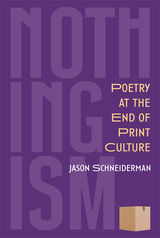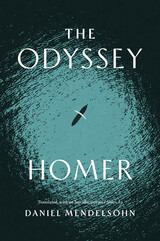
The Cambridge Songs, from the Latin Carmina Cantabrigiensia, is the most important anthology of songs from before the thirteenth-century Carmina Burana. It offers the only major surviving anthology of Latin lyric poems from between Charlemagne and the Battle of Hastings. It contains panegyrics and dirges, political poems, comic tales, religious and didactic poems, and poetry of spring and love. Was it a school book for students, or a songbook for the use of professional entertainers? The greatest certainty is that the poems were composed in the learned language, and that they were associated with song. The collection is like the contents of an eleventh-century jukebox or playlist of top hits from more than three centuries.
This edition and translation comprises a substantial introduction, the Latin texts and English prose in carefully matched presentation, and extensive commentary, along with appendices, list of works cited, and indices.
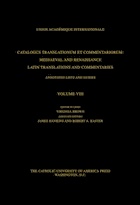
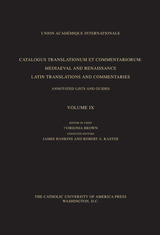
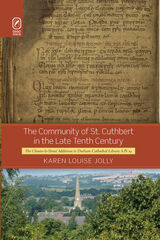
The Community of St. Cuthbert in the Late Tenth Century: The Chester-le-Street Additions to Durham Cathedral Library A.IV.19 reveals the dynamic role a seemingly marginalized community played during a defining period for the emergence of English religious identity. Based on her new critical edition of additions made to Durham Cathedral Library A.IV.19 and by questioning the purpose of those late tenth-century additions, Karen Louise Jolly is able to uncover much about the Chester-le-Street scribes and their tumultuous time, rife as it was with various political tensions, from Vikings and local Northumbrian nobles to an increasingly dominant West Saxon monarchy.
Why, for instance, would a priest laboriously insert an Old English gloss above every Latin word in a collection of prayers intended to be performed in Latin? What motivated the same English scribe to include Irish-derived Christian materials in the manuscript, including prayers invoking the archangel Panchiel to clear birds from a field?
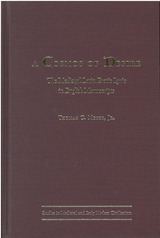
Thomas C. Moser, Jr. explores the fascinating body of medieval Latin erotic poetry found in English manuscripts. His study describes the intellectual and social context from which the great erotic songs of the twelfth century emerged, and examines a variety of erotic poems, from school exercises to the magnificent lyrics found in Arundel 384. He also illuminates the influence of neoplatonic philosophy on this poetry, explicating key neoplatonic texts and applying that analysis in close readings of erotic lyrics from the same period and milieu.
A Cosmos of Desire will interest scholars of medieval literature as well as specialists in Latin poetry and philosophy. Students of Middle English literature will find that it fills an important gap in our understanding of English intellectual life between the twelfth and the fourteenth century. All Latin prose and poetry is translated, some works for the first time, and the book is generously illustrated with photographs of the manuscripts discussed.
Thomas C. Moser, Jr. is Associate Professor of English at the University of Maryland, College Park.
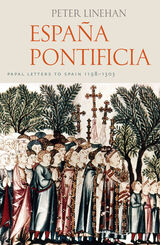
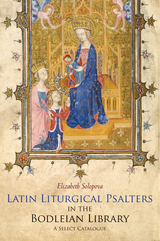
Latin Liturgical Psalters in the Bodleian Library describes more than one hundred psalters from Britain, France, the Netherlands, Germany, Austria, Italy, and Spain, ranging from the ninth to the sixteenth century and reflecting a wide range of requirements and interests. Each entry includes a description of the psalter’s contents, physical makeup, and provenance, alongside full-color images of pages, a bibliography, and tables to assist in the study of illumination and the liturgical use of psalms.
Bringing together important information on a stunning selection of little-known manuscripts held by the Bodleian Library, this volume will prove a valuable resource.
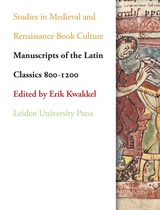

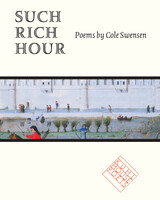
Covering a variety of subjects—from the plague and the first danse macabre to the development of perspective and recipes for pigments—the poems in Cole Swensen's new collection are set in fifteenth-century France and explore the end of the medieval world and its gradual transition into the Renaissance. The collection is loosely based on the calendar illuminations from the Très Riches Heures, the well-known book of hours, and uses them to explore the ways that the arts—visual and verbal—interact with history, at times prefiguring it, at times shaping it, and at times offering wry commentary or commiseration.

READERS
Browse our collection.
PUBLISHERS
See BiblioVault's publisher services.
STUDENT SERVICES
Files for college accessibility offices.
UChicago Accessibility Resources
home | accessibility | search | about | contact us
BiblioVault ® 2001 - 2025
The University of Chicago Press



